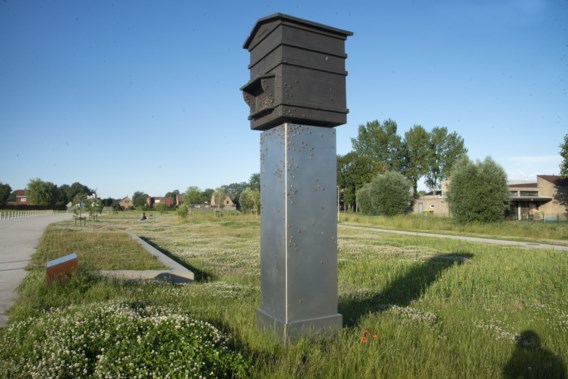A panel of 15 international historians was asked to review a controversial war memorial in the West-Flemish town of Zedelgem, and have deemed it “inappropriate.”
The memorial, which saw a wave of protests this summer, was erected in 2018 at the site of a prisoner of war camp established by the British army after World War II, according to De Standaard.
It depicts a beehive and calls attention only to prisoners from Latvia that were collaborators who served in the Waffen-SS, the military branch of the Nazi Party's SS organisation, during the war.
The symbolism of the beehive reflects the language of right-wing nationalism in Latvia, which depicts members of the SS Legion as patriotic heroes who fought against the Soviet occupation of Latvia.
The erecting of the monument also opened the possibility of a similar tribute to Flemish Nazi collaborators, as “recognition of the Flemish soldiers who also fought against communism on the Eastern Front.”
The summer’s protests prompted Zedelgem to ask an international panel of fifteen historians, including several Latvians, for advice.
“The memory of the camp prisoners deserves recognition, but not tribute,” was what the panel said.
They said the “Latvian Beehive” is “inappropriate,” along with the square where it stands that is named after it.
Related News
- Flemish minister lifts protection on four listed monuments
- Heritage Minister looks to make 'frietkoten' protected monuments
- Five questions to philosopher Philippe Van Parijs on Leopold II and embarrassment in Brussels’ public space
“If the statue is to be given a new purpose, as a work of art or otherwise, it is necessary to interpret its history critically, especially to do justice to the complexity of the historical context,” the advice reads.
The Vloethemveld, where the camp was located at the time, was given a similar assessment: the site can become “an innovative memorial project of European significance” only if given a multidimensional framework.
On the Zedelgem website description of the monument, the question "Why does this work of art have a place in Zedelgem?" is answered with the explanation that "the history of the POW camp is a complex story. The municipality is committed to thoroughly investigating this episode from the past and interpreting it for a wide audience in a nuanced, polyphonic way."
The municipal council will respond to the advice on Friday.

